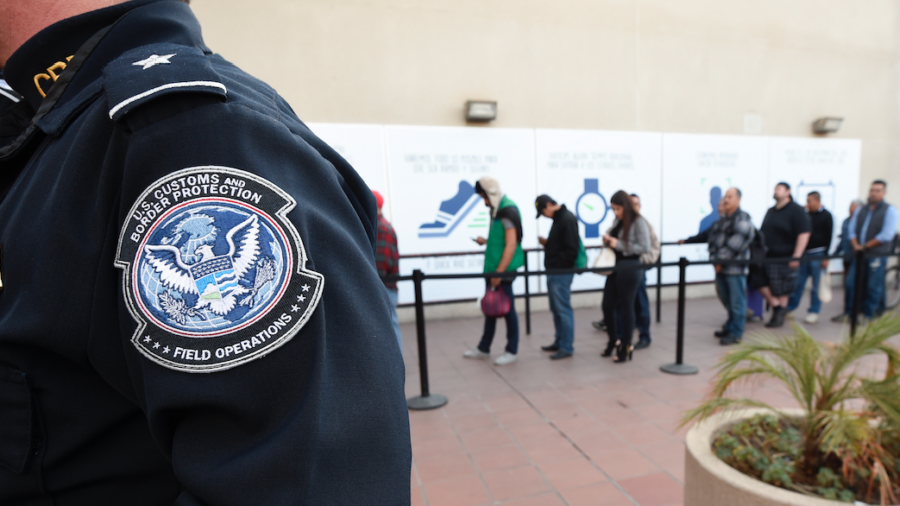A federal judge in California is defying an appeals court decision made last month to reimpose a nationwide ban on President Donald Trump’s asylum policy.
The Trump administration’s policy denied asylum to people who pass through countries where they could apply for asylum on their way to the United States.
U.S. District Judge Jon Tigar in San Francisco, who was appointed by former president Barack Obama, blocked the rule on July 24 at the request of activist groups that filed a suit against the policy, just hours before another federal judge denied a similar request from a different group of plaintiffs.
In mid-August, the 9th Circuit of Appeals said that Tigar made a mistake when he failed to consider whether a nationwide injunction was necessary. It upheld the ruling in Arizona and California, but freed New Mexico and Texas from the injunction because those states do not sit in the 9th Circuit.
It said that Tigar could restore the injunction if he “further develop the record in support of a preliminary injunction” stretching outside the 9th Circuit.
Tigar said in a new ruling on Sept. 9 that the appeals court ruling “did not provide instructions” for how he would go about developing the record but “the most plausible reading” of the ruling “is that it grants” him jurisdiction “to consider the augmented record in its totality and, based on that record, affirm or disaffirm the nationwide scope of its prior order.”
He said he was thus restoring the injunction because it could not address the “sufficient likelihood of irreparable harm” that the plaintiffs established without the injunction.

“The primary reason a nationwide injunction is appropriate is that it is the only means of affording complete relief to the Organization,” he wrote in his ruling.
One example he used was the Innovation Law Lab, a nonprofit focused on helping immigrants and refugees. If the injunction was not reimposed, the organization would “have to redesign its workshops and templates and ‘devote significant time to re-training … volunteers'” if its clients moved into and out of the 9th Circuit as their asylum cases work their way through the courts.
The group would also struggle to deal with the asylum policy in New Mexico and Texas because their clients would have to apply for withholding of removal or relief, not asylum, which “have a higher standard of proof than asylum,” making the cases more time-consuming.
“While nationwide injunctions are not the ‘general rule,’ they are appropriate ‘where such breadth [is] necessary to remedy a plaintiff’s harm,’” Tigar also wrote. “This is such a case. Accordingly, and for the reasons set forth above, the Court grants the [immigrant rights] Organizations’ motion to restore the nationwide scope of the injunction.”
Lee Gelernt, a civil rights lawyer at the ACLU, which was one of the groups that petitioned for the injunction to be restored, celebrated the ruling, saying on Twitter that it “will save lives.”
Acting Customs and Border Protection Commissioner Mark Morgan said the order was an example of the “unprecedented judicial activism” seen during the Trump administration.
The clash of courts in the same circuit highlights the activist role some judges have taken during the Trump presidency as the number of nationwide injunctions has skyrocketed, Morgan told reporters at a White House briefing.
“Every single time that this administration comes up with what we believe is a legal rule or policy that we really believe that will address this crisis, we end up getting enjoined,” Morgan said. “It’s very, very frustrating, but we’re just going to keep going.”

According to the Department of Justice, there was an average of 1.5 such injunctions issued each year against the administrations of Ronald Reagan, Bill Clinton, and George W. Bush, and 2.5 issued against the Obama administration.
But 20 injunctions, representing an eightfold increase over the Obama-era average, were issued against Trump’s administration during its first year, and the pace has continued since.
“We have seen over time an expansion of judicial willingness to review executive action,” Attorney General William Barr said in May about the situation. “Then, combine that with the strategies of sophisticated public-interest lawyers and the aggressive practices of some courts, such as the novel and growing use of nationwide injunctions. The legal community and the broader public should be more concerned, particularly about this trend of nationwide injunctions.”
In 2018, Supreme Court Justice Clarence Thomas wrote in an opinion that nationwide injunctions “are beginning to take a toll on the federal court system” and said that he didn’t think district courts have the authority to issue such injunctions.
“If their popularity continues, this Court must address their legality,” he said.
Petr Savb and Matthew Vadum contributed to this report.
From The Epoch Times

